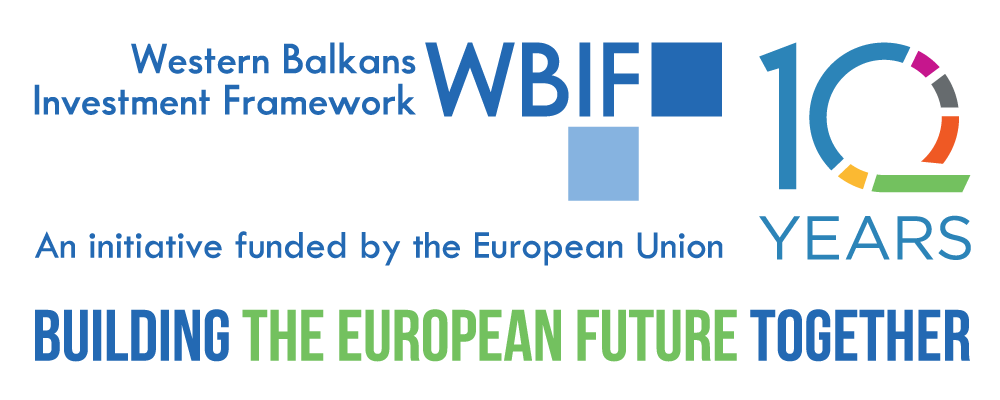The Western Balkans Investment Framework (WBIF) has provided crucial support which ensures a continuous and cost-efficient clean water supply to the inhabitants of Pristina and its surrounding municipalities. The amelioration of Pristina’s municipal infrastructure has mitigated chronic water shortages and enhanced quality of life for more than 500,000 inhabitants. The new water treatment plant provides safe drinking water, and, moreover, ensures better hygienic and sanitary conditions in the Pristina Region. This initiative is considered as a model throughout the region in terms of water treatment and environmental protection.
Water supply systems in Kosovo* have – over the past two decades – suffered from a lack of investments leading to inadequate and dilapidated infrastructure. This difficult situation was further exacerbated in 2014 when Pristina’s water reserves were fully depleted. Consequently, medical institutions and education facilities were directly affected by the lack of clean water for hygiene and sanitation purposes. Pristina’s water supply problems will only become worse, given the rapid population growth in the city.
The demographic changes coupled with a series of structural issues adding additional strain on the water supply services has caused high level of water losses – estimated at over 50% – which in turn have resulted in low water pressures and daily rationing of supplies lasting between 8 to 12 hours .
This WBIF initiative has improved conditions for the residents of Pristina, whose quality of life have significantly improved. The new infrastructure has also brought technological advances which enables the authorities to monitor the water levels of the lakes Badovac and Batlava, therefore ensuring the sustainability of the region’s water resources.
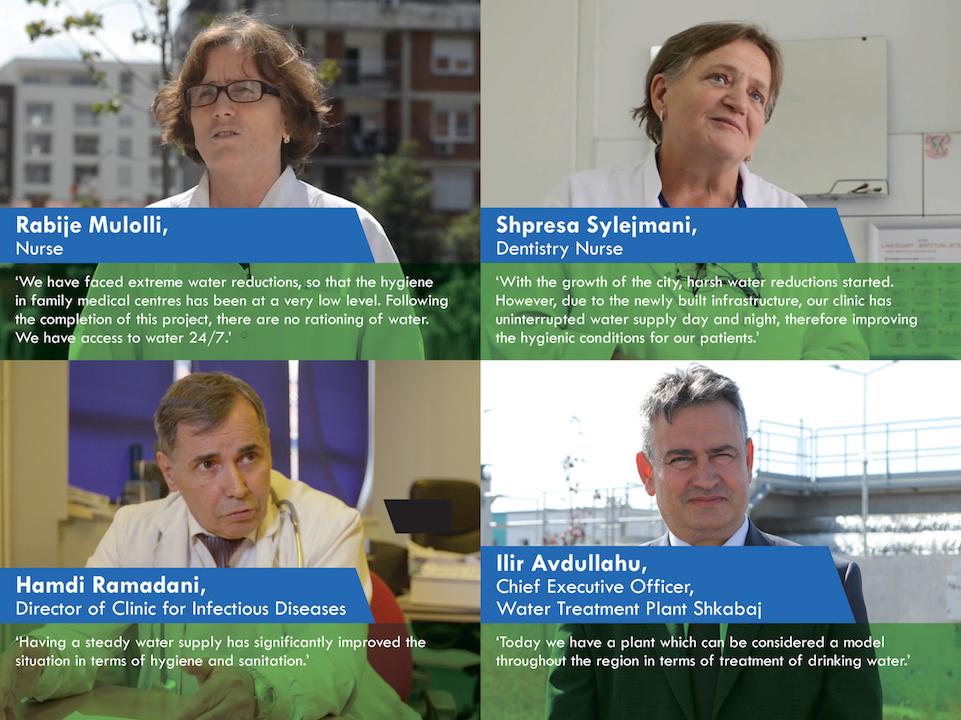
Project beneficiaries (c) EU.
The project “Pristina Regional Water Supply Project” ensures reliable water supplies to the Pristina region. The project entailed the development of a new water source from the Gazivoda Lake. The infrastructure provided under the WBIF enables water to be channelled from the Iber Channel to the newly built water treatment plant in Shkabaj. The new plant consists of a laboratory, an operation room, offices, as well as workshop and social rooms acquired through the funding.
Water is drawn from the natural source, channelled through an open gravity pipeline down to a pumping station where it is pumped to the water plant to be treated, processed, and filtered before being ready for consumption as drinking water. The water plant of Shkabaj has a capacity of 700 l/s, enough to secure a cost-efficient and continuous water supply to the municipalities of Pristina, Obilic, Fushe Kosove, Gracanica and Podjeva.
The WBIF contributed a grant for the preparation of the feasibility study. The new water supply system has been possible due to a loan from the KfW and contribution by the Government of Kosovo. The project also received a European Union grant through the Instrument for Pre-Accession Assistance (IPA) to partially defray the construction costs.
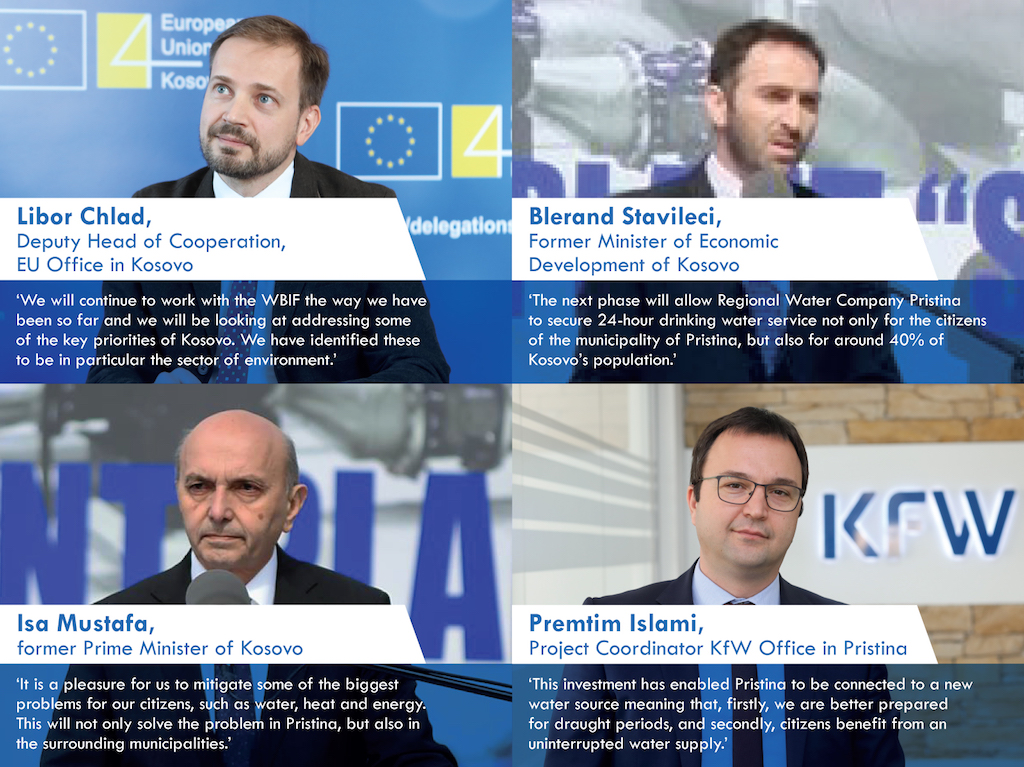
Stakeholders of the WBIF funded project (c) EU.
WBIF was jointly launched in 2009 by the European Commission (DG ELARG now DG NEAR), International Financial Institutions and Bilateral Donors to enhance harmonisation and cooperation in investments for the socio-economic development of the Western Balkans. Together with the Western Balkan beneficiaries, WBIF forms a unique partnership, defining priorities and support packages needed for strategic investments and institutional reform. WBIF contributes to the European perspective of the Western Balkans by supporting not only investment projects improving competitiveness and growth, but also by reinforcing regional cooperation and connectivity. Eligible sectors include digital infrastructure, energy, environment, social, transport, and private sector development through WBIF’s dedicated initiative EDIF (Enterprise Development and Innovation Facility). This cooperation is only possible due to the close and coordinated interaction among the European Commission, International Financial Institutions and Bilateral Donors, together with the Western Balkan beneficiaries.
This year marks WBIF’s 10th anniversary, and during the past decade over €1 billion in grants were allocated for preparation and implementation of infrastructure projects. Starting with 2015, around €200 million in investment grants per annum is allocated to the Western Balkan beneficiaries for the implementation of Connectivity Agenda. The EU grant channelled through the WBIF since inception, will support investment projects with an estimated total investment cost of €18 billion. The successful implementation of the EU grant have resulted in many tangible and intangible gains, including but not limited to: significantly reduced travel times; increased transport safety; reduced emissions; improved quality of life and urban environment; better learning conditions; and increased competitiveness, etc.
Some of the concrete benefits of the infrastructure projects supported by WBIF will entail:
Besides physical infrastructure, these investments will reduce existing barriers making the horizon of European accession visible and obtainable.
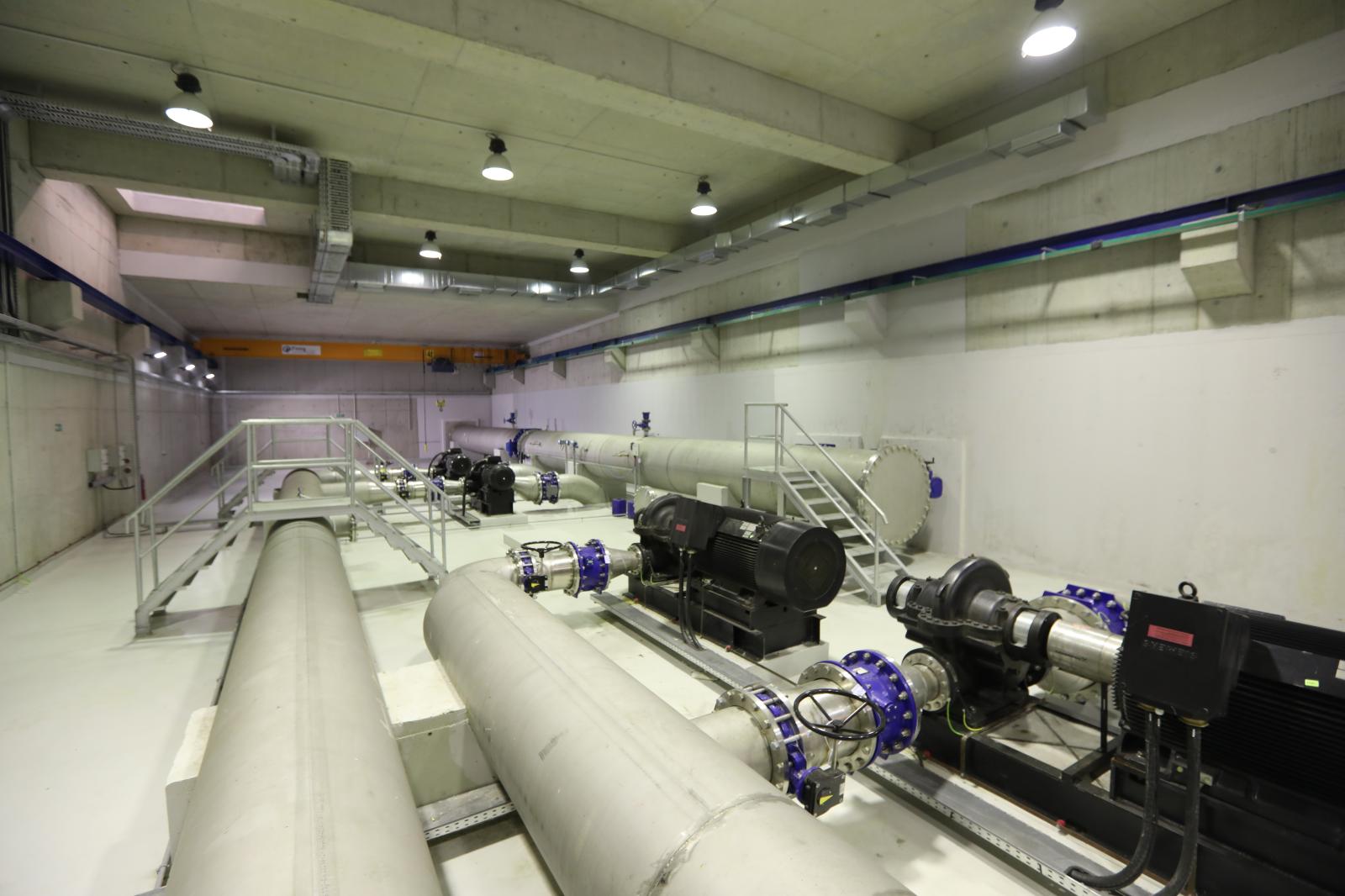
Water Treatment Plant Shkabaj, Pristina (c) EU.
'The construction of the plant has ensured a continuous supply of quality water, whereby the possibility of contamination equals to zero.'
Ilir Avdullahu, CEO Water Treatment Plant Pristina
Short video on Water Treatment Plant (c) EU.
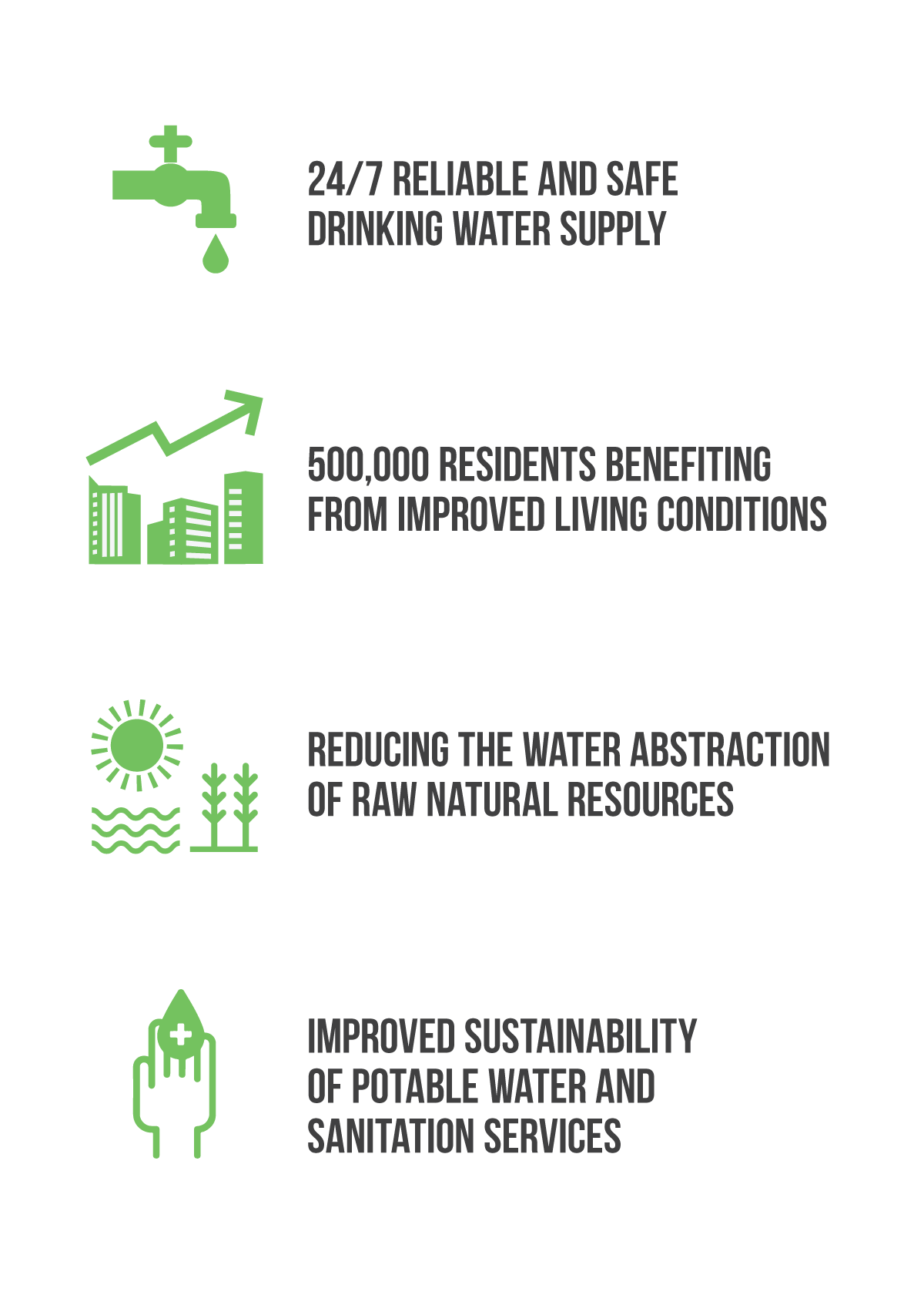
Project title:
Pristina Regional Water Supply Project
WBIF Grant:
€0.3 m
KfW Loan:
€20 m
European Union External Grant:
€4.9 m
Beneficiary Contribution:
€10 m
TOTAL PROJECT VALUE:
€35.2 m
